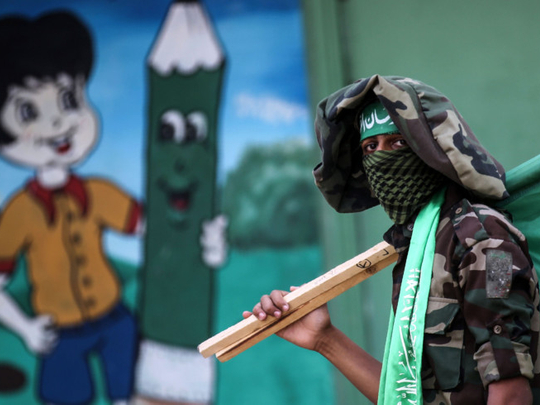
Dubai: Growing isolation has forced the Islamist Hamas movement which has ruled Gaza since 2007 to finally cave in and agree to resolve a long-standing conflict with the Palestinian Authority.
Previous efforts to end the feud have fallen apart before, and the Muslim Brotherhood-affiliated Hamas has not allowed a unity government formed in 2014 to extend its authority to Gaza.
Analysts say this time around will be different as Hamas faces unprecedented economic pressure while its chief backer, Qatar, is facing a regional boycott and growing isolation on the world stage due to its financing of terrorist groups.
On June 5, Saudi Arabia, the UAE, Bahrain and Egypt severed ties with Doha—they had already designated the Muslim Brotherhood as a terrorist organisation and asked Doha to stop hosting its leaders such as Hamas’ political chief Khalid Meshaal.
Jihad Harb, a Palestinian analyst told Gulf News the Qatari crisis is among the factors behind Hamas move.
“Its not the main factor but its an important one,” he said.
Egyptian political scientist from Al Ahram Strategic Studies Centre Mohammad Abbas Naji agreed and attributed Hamas’ decision to “regional developments, including the Qatar boycott to Qatar”.
In the midst of the latest round of reconciliation talks in Egypt, the group announced that it had agreed to dismantle an administrative committee it set up earlier this year to run Gaza.
Hamas also said it would agree to nationwide elections, which haven’t been held since 2006, and asked the rival West Bank government to return to Gaza.











